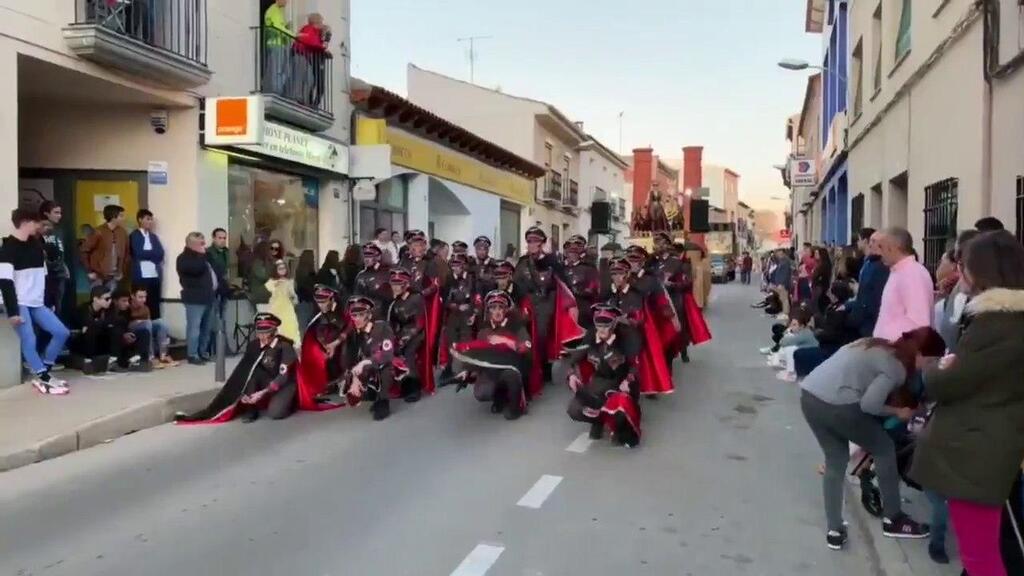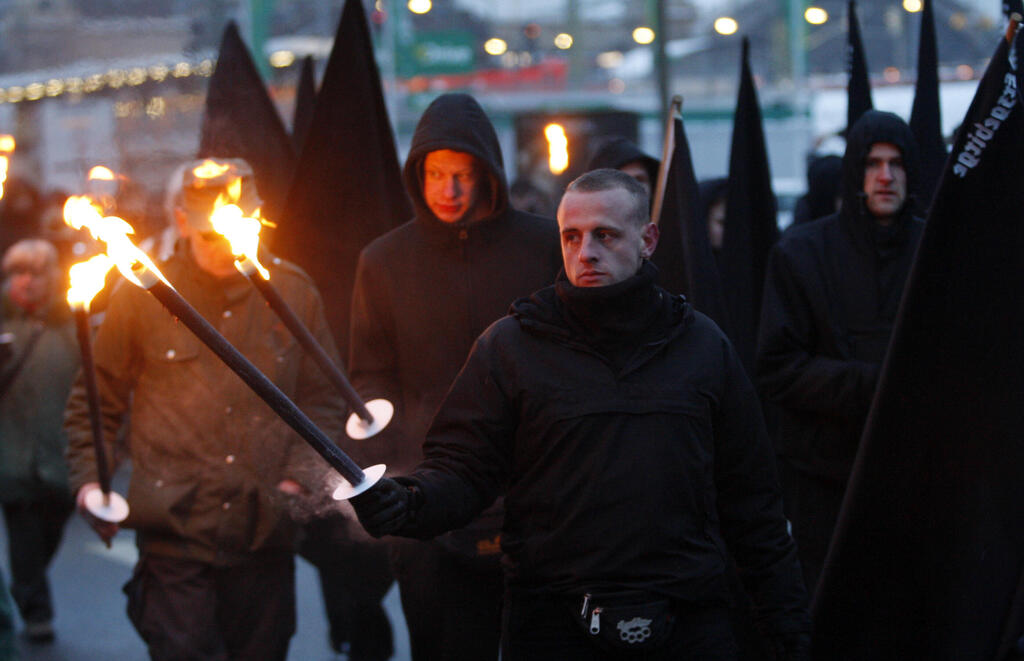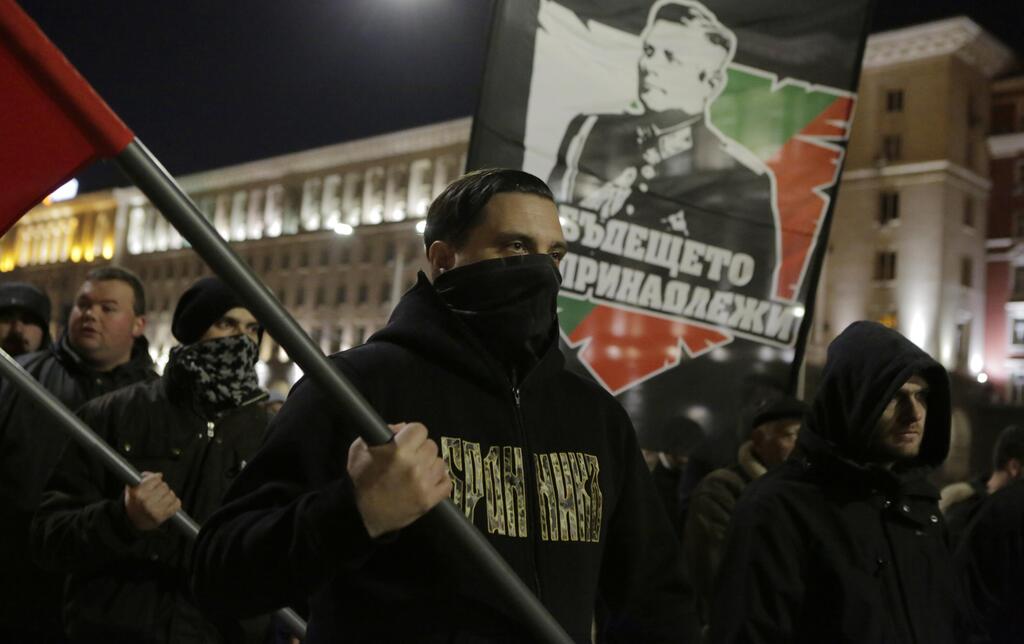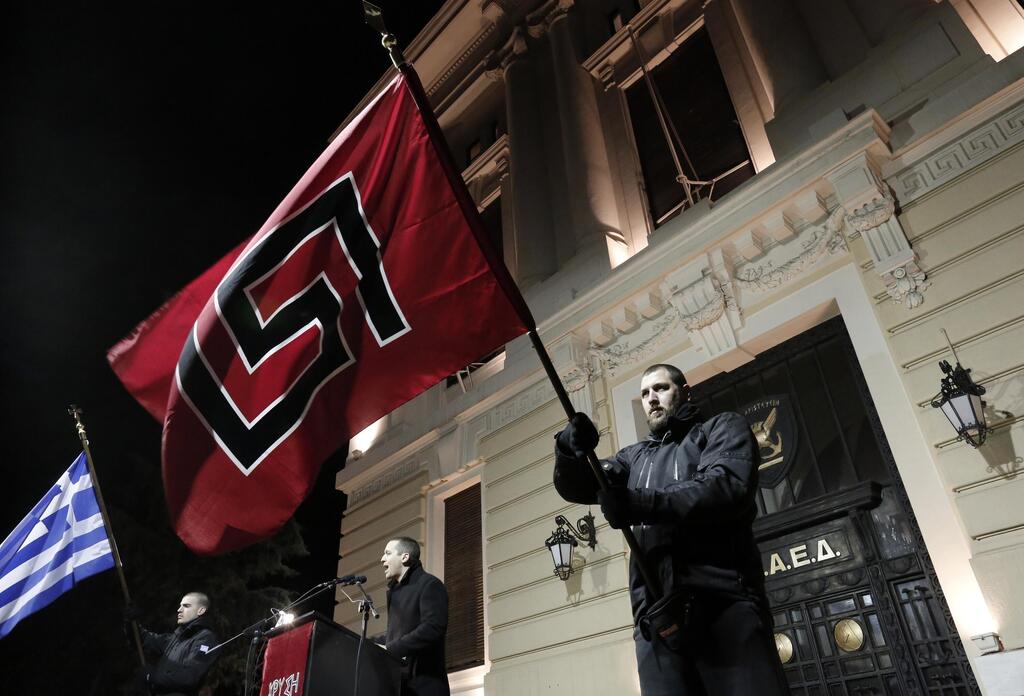Getting your Trinity Audio player ready...
Far-right activists torch a historical rights document for Jews at an Independence Day march
(Video: via Twitter)
It has been almost 80 years since the end of World War II, but far-right rallies are still taking place across Europe. Many of these marches display antisemitic symbols and glorify Nazism.
Related stories:
A special study conducted by Jewish service organization B’nai B’rith International reviewed the most extreme marches taking place in Europe each year. The common denominator that all these events share is antisemitism, xenophobia, Holocaust denial, and the adoption of Nazi and fascist symbols and ideologies.
The study highlights that while these events usually involve peaceful marches from one location to another, some participants engage in violent behavior and vandalism during the procession. On occasion, the marchers would clash with local security forces.
The researchers emphasize that one of the outcomes of these rallies is the formation of an "alternative memory" of World War II events, and the promotion of extreme ideologies.
Here are some of the most extreme rallies in Europe:
Day of Honor - Hungary
The Day of Honor march commemorates the unsuccessful joint efforts of Hungarian and German forces to breach the Soviet blockade in 1945, towards the end of the war.
The marchers aim to commemorate the struggle of these forces against communism, with some donning uniforms of the Hungarian or German army.
However, the march is organized by an extreme right-wing organization, and some of the participants showcase Nazi symbols and messages.
The march itself takes place roughly 60 kilometers away from Budapest and gained notoriety after its members vandalized a Jewish institution during one such event.
Following these incidents, authorities have prohibited the march over the past two years. Nevertheless, members of the organization have continued congregating in Budapest and performing minor ceremonies without coordination with the police.
Memorial March for the Bombing of Dresden - Germany
The annual event held in the city of Dresden is intended to commemorate the residents of the city who lost their lives during the heavy bombings that occurred in 1945. However, some of the organizers of the event refer to it as the "Holocaust of the Bombings," a phrase that undermines the significance of the Holocaust and its memory.
Throughout the years, the organization of the event has been taken over by extremist factions who display Nazi symbols. At its highest attendance, the event has had up to 6,500 marchers. However, due to opposition towards the event and its extremist messaging, the number of participants has gradually decreased.
Despite this, the march remains a significant event for extremist activists throughout Europe, and members of organizations from other countries often travel to Dresden to participate alongside local German activists.
Lukov March - Bulgaria
The annual march held in Sofia serves as a commemoration of the extremist Bulgarian general Hristo Lukov, who was a supporter of antisemitic laws and founded the fascist Union of Bulgarian National Legions in 1935. Despite efforts to curtail it, the march takes place each year, with participation ranging from a few hundred to a peak of 2,000 individuals.
The march not only praises General Lukov but also incorporates themes such as "the struggle of the white race in Europe" and various degrees of fascist messages. Local liberal parties, as well as the Israeli and U.S. embassies in Bulgaria, have denounced the march.
Blue Division March - Spain
The annual march in Madrid pays tribute and commemorates the Blue Division, a group of Spanish volunteers who fought alongside Nazi German forces in World War II.
The event gathers individuals who support the division's ideologies, those who support the former dictator Franco, and local extremist factions.
However, the event has not been highly successful, and typically, draws only a few hundred people each year.
Remembrance Day of the Latvian Legionnaires - Latvia
The Remembrance Day of the Latvian Legionnaires is celebrated annually in the capital city of Riga.
Initially intended to honor war veterans, the march has now blended with nationalist ideologies and has attracted extreme right-wing groups.
Despite its low turnout, it has drawn global attention due to some participants carrying Nazi symbols, such as swastikas and other memorabilia, and speeches that include elements of Holocaust denial.
Bleiburg Meeting - Austria
The Memorial Service for the Victims of the Bleiburg Massacre in the southern Austrian city of Bleiburg is an annual assembly of local extremist groups and Croatian elements.
The gathering commemorates the capture of fascist forces by Yugoslav partisans and the British army towards the end of World War II.
Although the event was relatively small in the past, it has grown in size in recent years, drawing tens of thousands of participants.
The event has garnered a lot of attention as Croatian soccer fans who espouse extremist views and violent behavior increasingly joined the ranks.
Rudolf Hess Memorial March - Germany
Memorial events commemorating Nazi war criminal Rudolf Hess, are held in various locations across Germany, including Berlin.
5 View gallery
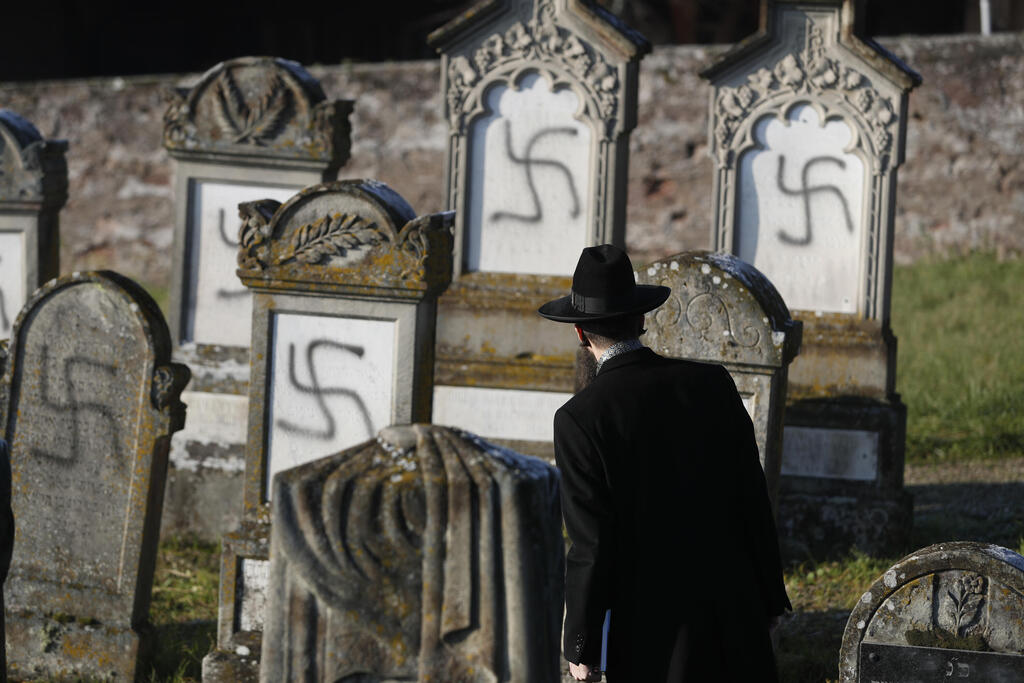

Graves in a Jewish cemetery in France defaced with swastikas
(Photo: Jean-François Babice / AP)
Hess was responsible for creating numerous antisemitic laws, and following his trial at the Nuremberg trials, he famously proclaimed that he "regrets nothing".
Each year, his followers visit his grave and follow a designated route. Although the march doesn't draw many participants, it occurs nearly every year and is an important date on the calendar for extremist organizations throughout Europe.
Iron Wake - Belgium
Originally serving as a memorial event for Flemish soldiers who died in World War I, the gathering gradually transformed into a meeting point for Belgian and regional extremists and fascists during the 1990s.
The event is not a march but a two-day conference with music and camping. While families and teenagers also attend, the event is primarily an annual gathering for extremist parties.
However, it's worth noting that not all attendees necessarily hold extremist views.
March on Rome - Italy
The March on Rome marks the day Mussolini's forces seized power in Italy in 1922.
While the march itself is relatively short, spanning approximately 2.5 kilometers, its symbolic significance is great.
Each year, several thousand individuals participate in the event, which features a range of messages from nationalist slogans to fascist and occasionally antisemitic signs.
Independence March - Poland
The annual march commemorates the Polish Independence Day of 1918 when neighboring countries recognized the country's sovereignty.
Although the event initially focused on National Independence Day, it has since become a platform for more extreme messages, drawing tens of thousands of participants. During the march, there were chants against Jews and Zionism, as well as sightings of Nazi elements.
Kohti vapautta and 612-march - Finland
The so-called 612 March (612 refers to 6 December, which is Finland’s Day of Independence) in Helsinki serves as a gathering place for local far-right elements.
Every year, several hundred activists participate in a short march and visit the graves of local military personnel who died in world war ii.
While most activists emphasize Finland's national messages, some espouse more extreme views.
In recent years, there has been an increased police presence at the event, which led to the removal of Nazi symbols.
Imia March - Athens, Greece
The most extreme march in Greece is organized by the Golden Dawn group to honor Greek soldiers who lost their lives during the conflict with Turkey.
The participants use the event as an opportunity to express their dissent towards the Greek government's perceived lack of action against Turkey.
However, the messages conveyed during the march frequently extend to other contentious topics and can be extreme in nature.
The event draws thousands of participants every year, including some from foreign countries.
The Jewish community in Athens has previously condemned the march and the messages conveyed by it.
According to the study, most of these rallies involve multiple instances of antisemitic chants, and some even feature messages promoting Holocaust denial and neo-Nazism.
Additionally, there are attempts at these events to revise historical events and portray aggressors as victims of the war.
These events also serve as a platform for promoting hostility and hate towards marginalized groups, including Jews, Roma, immigrants, and the LGBTQ+ community.
The study features a separate chapter focused on the legal status of these marches, as well as actions to restrict or prohibit them. The researchers commend the positive actions of some governments, human rights organizations, and local groups that are striving to prevent these events and convey a consistent message opposing fascism and the threat it poses to democracy.





